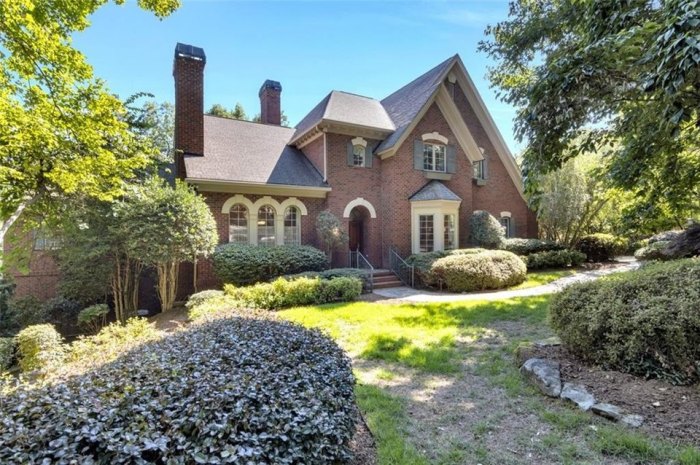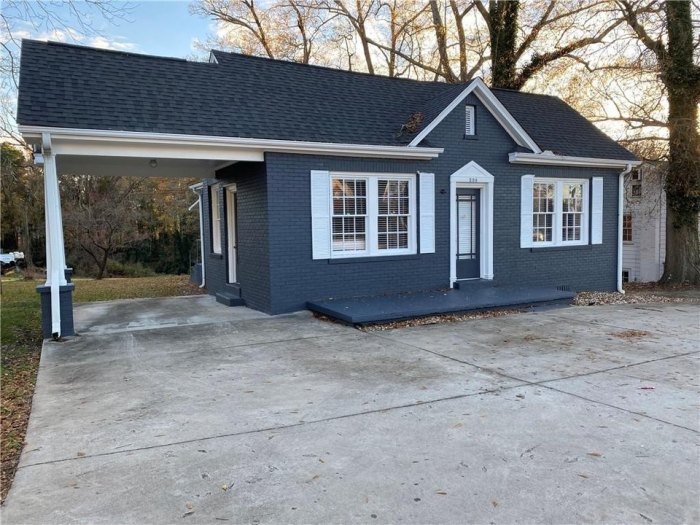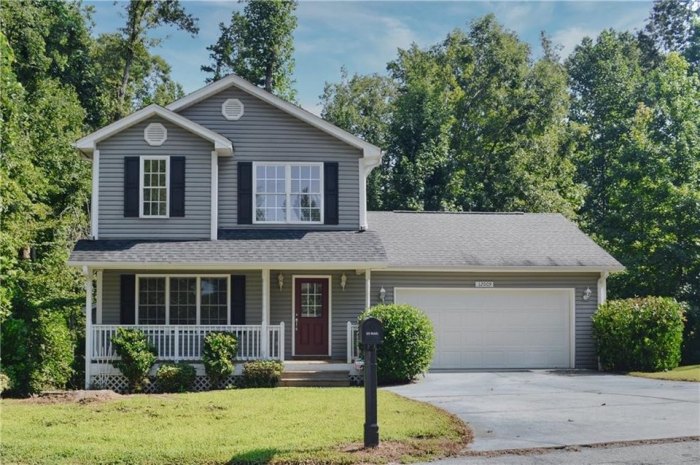Houses for Rent in Seneca SC Your Guide
Rental Market Overview in Seneca, SC

Source: rdcpix.com
Houses for rent in seneca sc – Seneca, South Carolina’s rental market is characterized by a moderate level of activity, with a generally balanced supply and demand. While not experiencing a housing shortage like some larger metropolitan areas, finding the right rental property may require some searching, depending on specific preferences and budget.
Types of Rental Properties

Source: rdcpix.com
Seneca offers a mix of rental properties to suit various needs and lifestyles. Single-family homes are readily available, particularly in established neighborhoods, catering to families or individuals seeking more space and privacy. Apartments, often in smaller complexes or scattered throughout the town, provide a more convenient and potentially lower-maintenance option. Townhouses represent a middle ground, offering a blend of community living and individual dwelling units.
Rental Price Comparisons
Average rental prices in Seneca are generally lower than those in neighboring cities like Greenville or Anderson. This difference is largely due to Seneca’s smaller size and slower pace of development. However, prices can vary significantly depending on the property type, size, age, and location within Seneca. More upscale properties in desirable neighborhoods naturally command higher rents.
Average Rental Prices and Listings
| Property Type | Average Rent | Number of Listings (Estimate) | Average Size (sq ft) |
|---|---|---|---|
| Single-Family Home | $1,500 – $2,200 | 50-75 | 1,500 – 2,000 |
| Apartment | $900 – $1,400 | 100-150 | 800 – 1,200 |
| Townhouse | $1,200 – $1,800 | 25-50 | 1,000 – 1,500 |
Note
These figures are estimates based on general market trends and may vary.*
Amenities and Features of Rental Houses
The amenities and features offered in rental houses in Seneca vary widely depending on the price point and location. Higher-priced rentals tend to include more modern upgrades and desirable features.
Range of Amenities by Price Point
- Budget-Friendly (Under $1,500): Basic appliances, central air and heat, possibly a small yard. Pet policies vary widely.
- Mid-Range ($1,500 – $2,000): Updated kitchens and bathrooms, larger yards, garages, potentially upgraded appliances (stainless steel, etc.). Pet policies may be more lenient or have additional fees.
- Luxury (Over $2,000): High-end finishes, spacious layouts, premium appliances, large yards, possibly swimming pools or other luxury features. Pet policies are often more flexible but with higher fees.
Amenities by Category
- Indoor Amenities: Central air and heat, updated kitchens and bathrooms, hardwood floors, fireplaces, stainless steel appliances, washer/dryer connections or in-unit laundry.
- Outdoor Amenities: Garages, carports, fenced yards, patios, decks, balconies.
- Pet-Related Amenities: Pet-friendly policies (with or without fees), fenced yards.
Neighborhood Variations in Amenities
Amenities available can vary between neighborhoods. For instance, newer neighborhoods might offer more modern conveniences and larger homes with updated amenities compared to older, more established areas.
Neighborhoods and Locations in Seneca, SC
Seneca offers a range of neighborhoods, each with its own unique character and appeal. Proximity to schools, shopping centers, and other amenities is a key factor in choosing a rental property.
Neighborhood Descriptions and Advantages/Disadvantages, Houses for rent in seneca sc
- Neighborhood A (Example): Close proximity to downtown Seneca, walkable to shops and restaurants. Advantages: Convenient location, vibrant atmosphere. Disadvantages: Potentially higher rental costs, more noise.
- Neighborhood B (Example): Located near Seneca High School, family-friendly environment with larger homes and yards. Advantages: Excellent schools, quiet residential area. Disadvantages: May be further from downtown amenities.
- Neighborhood C (Example): Situated near Lake Keowee, offering scenic views and access to outdoor recreation. Advantages: Beautiful setting, access to water activities. Disadvantages: Potentially longer commute to downtown Seneca.
Neighborhood Location Overview
Imagine a map of Seneca, SC. Neighborhood A is situated in the heart of downtown, close to the main commercial area. Neighborhood B is located towards the northwest, near the school district. Neighborhood C is positioned to the southeast, bordering Lake Keowee. This simplified representation illustrates the relative locations of these neighborhoods.
Rental Process and Considerations
Renting a house in Seneca typically involves several key steps. It is crucial to work with reputable rental agencies or landlords to ensure a smooth and transparent process.
Steps in the Rental Process
- Property Search: Use online resources, contact local real estate agencies, and drive around to find available properties.
- Application Submission: Complete a rental application, providing personal information, employment history, and references.
- Background Check: Undergo a background check to verify your identity, credit history, and rental history.
- Lease Signing: Once approved, carefully review the lease agreement and sign all necessary documents.
- Move-In: Complete the move-in process, ensuring a thorough walkthrough of the property with the landlord or property manager.
Finding Reputable Landlords/Agencies
Check online reviews, ask for references, and verify licenses and permits before committing to a rental agreement. Avoid landlords or agencies who are evasive or unwilling to provide necessary information.
Common Lease Clauses
Common clauses in rental agreements include details about rent payments, lease duration, pet policies, maintenance responsibilities, and eviction procedures. Carefully review all clauses before signing.
Cost of Living and Associated Expenses
The cost of living in Seneca is relatively affordable compared to larger cities in South Carolina. However, renters should factor in various expenses beyond the monthly rent.
Average Utility Costs
Average monthly utility costs (electricity, water, gas) in Seneca are estimated to range from $200 to $300, depending on usage and the size of the property.
Cost of Living Comparison
Seneca’s cost of living is generally lower than that of comparable-sized towns in the state. However, this can vary depending on specific lifestyle choices.
Additional Rental Expenses
- Renters insurance: Protects your belongings and provides liability coverage.
- HOA fees (if applicable): Cover maintenance and amenities within a homeowners association.
- Security deposit: Typically one or two months’ rent.
- Application fees: Usually a small fee to process your rental application.
Estimated Monthly Expenses

Source: rdcpix.com
- Rent: $1,500 – $2,200 (depending on property type and size)
- Utilities: $200 – $300
- Renters insurance: $20 – $40
- Potential HOA fees: $50 – $150 (if applicable)
- Total Estimated Monthly Expenses: $1,770 – $2,610 (This is an estimate and can vary)
FAQ Section: Houses For Rent In Seneca Sc
What is the average security deposit in Seneca, SC?
Security deposits typically range from one to two months’ rent, depending on the landlord and property.
Are pets allowed in most rentals in Seneca?
Pet policies vary widely. Some landlords allow pets with additional fees and restrictions, while others have strict “no pet” policies. Always inquire directly with the landlord or property manager.
Finding the perfect rental in Seneca, SC, can be a rewarding experience. If you’re open to exploring other areas, you might also consider the options available in Florida; for example, check out the diverse selection of houses for rent in plantation fl , which offers a different climate and lifestyle. Ultimately, the best choice depends on your specific needs and preferences, but exploring options in both locations could broaden your search for the ideal house to rent.
How long is the typical lease term?
Lease terms commonly range from six months to one year, but longer or shorter terms may be available depending on the property and landlord.
What are the typical utilities included in rent?
Rent typically covers only the property itself. Utilities such as electricity, water, gas, and internet are usually the tenant’s responsibility.




















